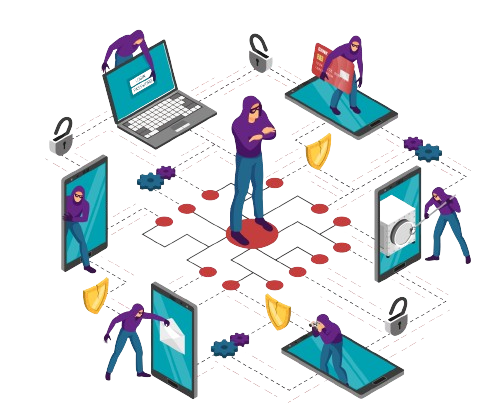Social Engineering Testing
We help companies to evaluate the susceptibility of their employees, systems, and infrastructure to social engineering attacks.

PsyberX protects organizations from social engineering attacks and enhance their overall security posture.


Don't have to worry about Social Engineering attacks anymore
Raise awareness among your employees about the various tactics used by attackers to manipulate individuals and gain unauthorized access to data.
Social engineering penetration testing can highlight areas where employees may require additional training or reinforcement of security policies and procedures.
We help companies identify weaknesses in their security controls and procedures, such as inadequate access controls, lax password management practices, or ineffective email filtering mechanisms.
Demonstrating a commitment to security and protecting customer data can enhance trust and confidence among customers and other stakeholders.
Our approach
- Tailored Approach
-
Our expert penetration testers will tailor your social engineering tactics to the specific context and characteristics of your target organization. This includes considering factors such as industry, organizational culture, geographic location, and the roles and responsibilities of your employees.
- Realistic Scenarios
-
We will create realistic scenarios that mimic common social engineering tactics used by attackers. PsyberX will adhere to ethical guidelines and obtain proper authorization from the organization before conducting social engineering testing. We will never engage in activities that could cause harm, violate privacy or confidentiality, or disrupt normal business operations.
- Variety of Techniques
-
Our testers will employ a variety of social engineering techniques, including phishing, pretexting and baiting, to assess different aspects of the organization's security posture. This may involve crafting convincing phishing emails, phone calls, or physical infiltration attempts that closely resemble the tactics employed by real attackers.
